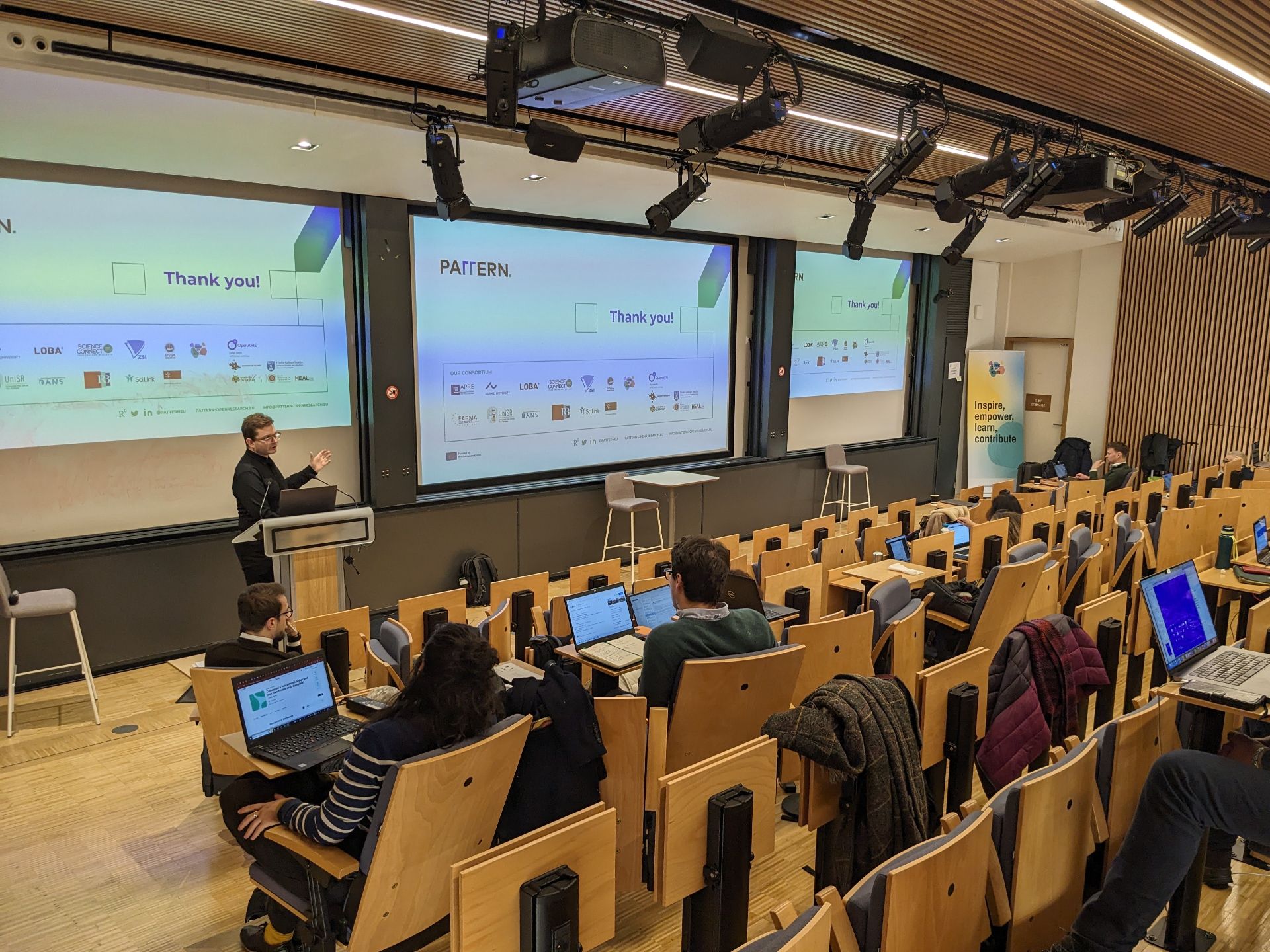News
This news article was developed by PATTERN partner UniSR, go check the original article here!
The overarching goal of PATTERN is to promote inclusive and sustainable practices in Open Science (OS) and Responsible Research and Innovation (RRI), both included in the term OpenRRI, through the development of relevant researcher training. PATTERN has a focus on eight main transferable skills within the context of OS and RRI: Open Access; FAIR data Management; Citizen Science; Research Integrity; Gender, non-discrimination and inclusion in research; Dissemination and Exploitation of Results; Science Communication (towards media and policy makers); Management and Leadership (a comprehensive glossary of all these terms can be found on PATTERN website).
On January 9th and 10th, the PATTERN consortium gathered for the first General Assembly. Delegates from all partners, including UniSR, met at the Learning Planet Institute in Paris and discussed the state and future steps of the project.

As a first project result, an analysis of the existing OS and RRI training activities was conducted. The results of this evaluation are detailed in one of the first project deliverables, now published in Zenodo repository. The analysis took into account 571 training resources; of these, 283 were dedicated to beginners and only 25 to advanced learners, with the following breakdown: Open Access (34); FAIR data and Research Data Management (62); Citizen Science (109); Research Integrity (32); Gender, non-discrimination and inclusion in research (64); Dissemination and Exploitation of Results (35); Science Communication (towards media and policy-makers) (114); Management and Leadership (47); General RRI and Open Science (66); Collections, Catalogues and Platforms (19).
Most of the resources collected were in English, reflecting the status of the English language as a global lingua franca in the scientific space. Nevertheless, the mapping also identified resources in some of the languages spoken by members of the consortium, such as Italian, German, French, Spanish, Croatian, Portuguese, Finnish, Greek, Dutch, Hungarian, and others.
PATTERN also distributed a survey and interviewed several experts in the areas covered by the project. Overall, general trends influencing education and training were identified:
The Consortium also described and analysed the existing policies, policy frameworks, initiatives and guidelines, to assess gaps and possible needs in addressing training for OpenRRI practices, for researchers at all career stages. The analysis covered three levels:
Over the next few months topic-specific working groups will work on the development of training modules: UniSR is the thematic leader for Gender, non-discrimination and inclusion. This topic is of pivotal importance for UniSR: in June 2022, UniSR approved and funded a Gender Equality Plan, a strategic document designed to promote equal opportunities and foster the inclusive participation of all individuals within the University community. Among other initiatives, a Gender Agent has been appointed for the entire duration of the GEP implementation, with the aim of monitoring the activation and realisation of all the plan’s objectives and related actions. Moreover, internal guidelines for the usage of an inclusive language were released. To empower RRI, knowledge pertaining to gender, non-discrimination and inclusion should be incorporated into the researcher’s education, research projects, and overall working environment, a goal UniSR will reach thanks to the development of dedicated training resources that will be piloted by UniSR and other PATTERN partners.
In addition to Gender, non-discrimination and inclusion, UniSR will be a pilot organization to test the trainings produced by PATTERN on other topics, namely: Research Integrity, Dissemination and Exploitation of results, Science Communication, and Citizen Science.
The Pattern Project may use cookies to memorize your login data, collect statistics to optimize the website’s functionality and to carry out marketing actions based on your interests. You can personalize the cookies used in .

